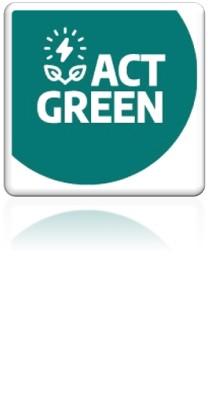SOLE launches the campaign “Act Green” to change the behaviour of buildings' users for better energy efficiency

The SOLE project supports cost-effective and innovative energy rehabilitations in 7 selected public building (Pilot buildings) in the Mediterranean. Besides these pilots, SOLE will also intervene at two levels: first, by encouraging behavioural change in people, inspired by an Interreg experience (REBUS project) and, secondly, by impacting on local policies through lobbying and advocacy to integrate the pilots´ results in relevant policy frameworks.
As regards behavioural change, the SOLE project aims at turning information into active engagement with a wide-scale awareness campaign containing measures to change users’ interaction with the buildings they work in or visit.
Starting from the communication material produced for the Interreg Europe REBUS Project and the Big Switch Off Campaign (good practice from Durham County Council - UK) the Italian partner Agenzia Regionale Recupero Risorse (ARRR) developed a Capacity Building pack to be applied in pilot territories by partners and useful to launch the SOLE Campaign “Act Green”, with a dedicated graphic communication.
At the moment the materials are almost ready and only need the necessary feedback and approval from partners. After these steps, the next activities will be the organisation of internal training for public civil servants, building managers and building users and the application in public buildings in each partner territory. Indeed, partners will implement the Act Green campaign in their Pilot Building and, where possible, in other buildings that they own or manage. Then, they will monitor the results of the behavioural change campaign.
The campaign will concentrate on suggestions on how we can save energy at workplace, in particular thanks to 10 moves which aim at changing the daily habits of people, applicable both to the domestic sphere as well as the working sphere. Some of these tips benefit not only from the point of view of saving energy but also to improve the living conditions and health of people. Examples include using the stairs instead of the elevator or taking advantage of sunlight, when possible, instead of artificial light. The campaign will vary for each territory but is designed to show users how small changes in energy use can make a big change.
Partner ARRR transfers an approach learned/tested in the REBUS project concerning consumption monitoring systems and behaviour change. This project has showed the importance of having well-trained staff in public administrations who can deal with energy efficiency competently and, not less relevant, having the building users well informed.









